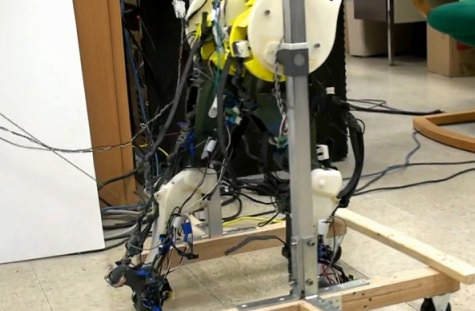Robots are good at computational tasks like playing chess, figuring out bus routes or solving math problems, for example. But ask them to walk, talk or recognize everyday objects, and things quickly fall apart, researchers say.
An emerging field known as of “neurobiological robotics” is looking for unique human or animal abilities that can be copied, turned into software, and replicated in order to make robots work better.
Top researchers from around the world will be presenting several works-in-progress at the IEEE International Conference on Robotics and Automation this week in Hong Kong.
“We’re trying to make the robot brain more like human brain,” said Jeff Krichmar, professor of cognitive science at the University of California, Irvine. “The brain has incredibly flexibility and adaptability. If you look at any artificial system, it’s far more brittle than biology.”
Krichmar wants to build neurotic robots who display signs of OCD, or obsessive compulsive disorder. To accomplish this, he must make a robot act like a mouse in a cage.
“If you put a rodent in a room that is open and unfamiliar, it will hug the walls,” Krichmar said. “It will hide until it becomes comfortable, then it will move across the room. It will wait until if feels comfortable. We did that with a robot and made it so it was so anxious it would never cross the room.”
Krichmar and his team use a rodent model and varying levels of dopamine and serotonin, two hormones that greatly influence the pleasure centers of the brain. The effects of the hormones on the mouse are then replicated in the robot’s software.
“We’re mimicking the action of the chemicals with equations,” he said. “We are doing mathematical models of brain or cognitive system, then putting that in software and it becomes the controller for the robot.”
Agencies/Canadajournal
 Canada Journal – News of the World Articles and videos to bring you the biggest Canadian news stories from across the country every day
Canada Journal – News of the World Articles and videos to bring you the biggest Canadian news stories from across the country every day



